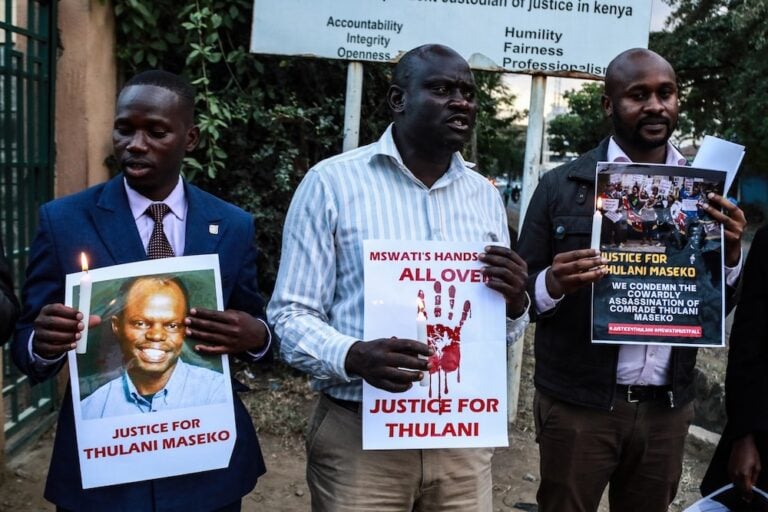(MISA/IFEX) – On 12 January 2009, Mfomfo Nkambule, a popular columnist with the privately owned “Times of Swaziland” newspaper, succumbed to persistent harassment by state police and traditional authorities and publicly apologised to King Mswati III for his recently published series of articles which were highly critical of the king and his leadership style. After […]
(MISA/IFEX) – On 12 January 2009, Mfomfo Nkambule, a popular columnist with the privately owned “Times of Swaziland” newspaper, succumbed to persistent harassment by state police and traditional authorities and publicly apologised to King Mswati III for his recently published series of articles which were highly critical of the king and his leadership style.
After being warned by the police to mind his language, Nkambule, a former cabinet minister and member of parliament, was summoned by his traditional chief who questioned him on his motive in writing the critical articles. Feeling the pressure, Nkambule apologised to the king in his 12 January column.
Nkambule, chairperson of a political party known as Inhlava, wrote in his open letter to the king: “With the greatest respect and humility may I apologise unreservedly for the unnecessary anxiety and stress caused by the articles that have been published over the past 16 months. I know what the lion is capable of doing when it is angry or threatened. I do not want to test your patience. I feel very comfortable when you are not angry. When you are not angry you give me the freedom and courage to think broadly, put my thoughts on paper to influence my fellow countrymen and be myself.”
In his column, Nkambule stayed away from controversy as much as possible in an obvious attempt to appease the authorities. Many had expected Nkambule to be defiant and continue with his criticism, which many read as fair. Nkambule’s move to succumb to pressure sums up the fear that Swazis have when it comes to exercising their right to freedom of expression. MISA-Swaziland notes that outspoken voices are quickly silenced through intimidation and harassment.
Updates the Nkambule case: http://ifex.org/en/content/view/full/99687


